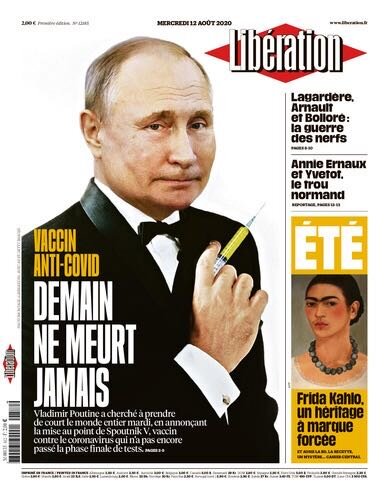
spoon
Members-
Posts
3,723 -
Joined
-
Last visited
-
Days Won
69
Content Type
Profiles
Forums
Events
Everything posted by spoon
-
If the hotel provided daily selection of boys my type, i might consider lol
-
Finally a more practical solution instead of the overly ambitious impractical canal. It certainly is a compromise though. Having to unload and load the ship might add to the time that might make journey by ship the normal way more convenient. But any alternatives is good and this project will help more people in the long run. I wonder where this land bridge will be constructed?
-
Do you really expect an answer on a public forum? Lol
-
When will Thailand open to Tourists- question/speculation?
spoon replied to floridarob's topic in The Beer Bar
Maybe thai officials should refer to their medical expert first before making a statement? Just me trying to make sense of this lol -
Thai prisons has a notorious reputation worldwide, so surely it can be turned into a tourist attraction indeed. Although half of the prison turned into tourist attraction is definitely farfetch. Perhaps focusing on one or two prison, each with their own uniqueness is a more practical way of doing this. Things like weird location (like alcatraz island) or extreme security, or housed widely known serial killers etc. So far, ive seen thai prison only in documentary such as locked out abroad.
-
Most of this ease restrictions are currently only applied to business travellers. Surely in the right direction though. For malaysia-singapore reciprocal agreement, there is 2 scheme. Short term business traveller less than 14 days, they need to be in their country 14 days prior, get tested 3 days prior, get tested during arrival, and free to go after getting negative results. And long term workers allowed to go back to home town once every 3 month, observing home quarantine 7 days prior and after. Middle of the line approach that i hope will extend to tourist soon.
-
Have no idea if they have different or same owner but precovid, the massage guys from tawan massage does parade in tawan bar in the beginning of the show and the mc would promote the massage services.
-
Its aek, dont recall his number, and there is his pic in jupiter thread in the photo section i believe. Found the post.
-
Given that you are the only customer, mamasan are desperate to make some money of you too. Jupiter mamasan was so busy before pre covid that they barely disturbed me when i visited there lol The most famous gay guy who will not go with women customer is there. Maybe u forgot lol. And i believes there are few more that always hang out with him, but i doubt there are many before. But who knows about the current line up except michael hehe.
-
Thailand to allow long stay tourists in island of phuket from october
spoon replied to spoon's topic in Gay Thailand
Yup, this is a better option than the current one. And if its true, youd want to queue for it as soon as possible, given the current queue to return is outrageous. And seems like this one is the first that doesnt require a special visa too. Its a way in for many, but definitely not for short term visitor. -
Link Thailand will allow foreign tourists to visit for longer stays from October, a senior official said on Friday, as the government tries to revive a key economic sector that has been devastated by the coronavirus pandemic. Tourists will have to stay for at least 30 days, with the first 14 days in quarantine in a limited vicinity of their hotel, before they can visit other areas, Tourism Authority of Thailand governor Yuthasak Supasorn told Reuters. Visitors will have to take two coronavirus tests during quarantine before they are able to travel to the rest of the island, Minister of Tourism and Sports Phiphat Ratchakitprakarn, said on Thursday. Staff will also have to remain in the hotel, he added. Visitors will have to take an additional test and remain within the province for another week before they can travel to other parts of the country.
-
182000 staying an extra 14 days in isolation, paying around 60-100k baht on average, on top of whatever they can do afterwards. Quite a significant chunk. That one guy coming back for a visa run spent 300k baht total. While certainly not the amount thailand used to get, it adds up and help a little.
-
That would be my guess too. Even though u got 1 hour to use facilities, doesnt mean u can use all of them without some system. Thats the reason u only get 1 hour to begin with, so the hotel can implement their SOP to ensure social distancing and sanitization.
-
Based on the story shared above, after you tested negative at the hotel, u are allowed 1 hour time a day for accessing limited hotel facilities. Cant say the rate is bad but the fact is you cant go out or bring boy in. Deal breaker for me haha.
-
-
Contact those in waiting lists (more than 1000 candidates) and charter a private plane together might be the solution here.
-
Link Malaysia and Singapore will begin reopening the borders between the two countries from August 17, 2020 for selected travelers under the Reciprocal Green Lane (RGL), and the Periodic Commuting Arrangement (PCA) travel schemes. The RGL scheme will permit short-term travel of up to 14 days for essential and official business. The PCA scheme will enable cross-border travel for those that have valid work visas. Strict health protocols, such as COVID-19 testing and self-quarantine measures will apply to all travelers. Before the onset of COVID-19, the Malaysia-Singapore border was one of the busiest in the world, with more than 300,000 daily travelers crossing via land and more than 29,000 flights annually. Malaysia and Singapore will begin allowing limited cross-border travel between the two countries from August 17, 2020, months after they were closed due to the ongoing coronavirus pandemic. The two countries have issued two new schemes to facilitate the cross-border travel – the Reciprocal Green Lane (RGL) and the Periodic Commuting Arrangement (PCA). The RGL enables short-term travel for official purposes and essential business for up to a maximum of 14 days’ stay. The PCA scheme allows the entry of residents of both countries who hold valid work passes. Both travel schemes incorporate strict health and visa protocols, such as mandatory pre-departure COVID-19 tests and self-quarantine upon arrival. Malaysia and Singapore have one of the world’s busiest border crossings. Prior to the onset of COVID-19, the land border would see more than 300,000 people traverse each day and more than 29,000 annual flight; the equivalent of 82 flights a day.
-
Singapore and malaysia has started travel bubble for those with work permit. Hoping more country will start to do this soon
-
The total cost was 300k baht! Imagine what i can do with that amount in thailand!
-
You are living my fantasy lol alone in a bar, all boys naked, hungry for my attention. And a private sexy show to top it off. The only missing part is offing boy or boys back to hotel lol. Also interested to know more about the guys available lol
-
20k baht starting is definitely attractive and during this trying time, im not surprised thousands comes for the chance.
-
Some boys are freelancing in few massage places and only come when asked. I also noticed few of them in several diff massage places.
-
UK has just included malaysia and brunei in their quarantine exemption list. Useful for those who wants to go there for work or study, but for travel, not really practical as we still need to be quarantine when we arrived home.
-
When will Thailand open to Tourists- question/speculation?
spoon replied to floridarob's topic in The Beer Bar
-
Seems like world remit is a cheaper option to send money to boy who dont have bank acc. Otherwise, transferwise is cheaper.




